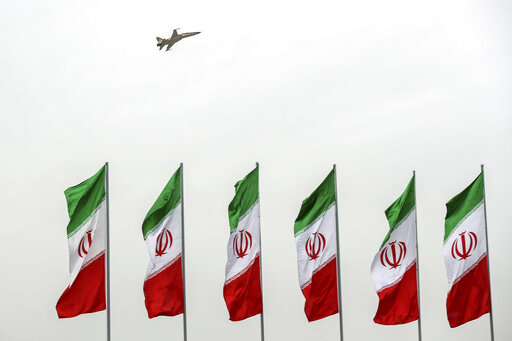With the end of US waivers for Iran's major oil buyers, Tehran and its European partners pin hope on the implementation of an EU-designed payment channel to weather off US sanction pressures on the Islamic republic.

File photo: AP
Last May, US President Donald Trump announced the US withdrawal from the JCPOA, namely the Iranian international nuclear deal signed in 2015.
Following the withdrawal, Trump's administration returned the sanctions on Iran's oil exports in November, which had been lifted under the JCPOA, and allowed a number of major Iranian oil customers for a six-month deal with the Islamic republic. The waivers ended on Tuesday.
On Saturday, Iran concluded the 24th International Oil, Gas, Refining and Petrochemical Exhibition (Iran Oil Show 2019), according to Tehran Times daily report on Sunday.
At the end of the four-day exhibition, a number of the European participants announced in an interview that the US. pressures for isolating Iran's economy would not stop them from collaborating with Iran's oil, gas and petrochemical sectors.
"This year we are here with a delegation comprising 14 Italian companies and there are also companies which are attending as visitors," said Andrea Zucchini, president of I-Pars company that attended the exhibition.
"There are many negotiations in progress (between Iran and the Italian firms), but Italian companies are very reserved at this point because of the US sanctions," Zucchini, whose company develops business between Italy, Iran and the Middle East, said.
"I think it is possible to work for Italian companies in Iran even during the US sanctions," he said, adding that "the INSTEX system is a right solution."
The Instrument in Support of Trade Exchanges (INSTEX), EU's special payment channel with Iran, was announced by the EU in January to secure trade with Iran and skirt US anti-Iran sanctions after Washington pulled out of the 2015 landmark Iranian nuclear deal in May 2018.
However, "it is still unclear how INSTEX can be used. It is therefore important for Europe to hurry and make this system operate. Our companies are waiting for it and I think it could give further confidence to all the traders with Iran," Zucchini said.
"This year's fair went very well and I still think that Iran is a gold mine for Italian companies," he pointed out.
In the meantime, Cecilio Castro Lopez, the representative of the Spain pavilion in the Iranian exhibition, said that "Spain has been here for many years, however, this year due to the US sanctions only two companies are participating."
"Right now, the situation is a little difficult and with INSTEX we hope that things get better," he said, adding that "Iran is a very good market and there are a lot of Spanish companies which are interested in collaborating in Iran's oil and gas industry."
Although the Iranian officials have welcomed the establishment of the payment channel by the European states to help continue trade with Iran, they are critical of Europe's lingering to implement the channel and make it functional. Several meetings have been held between the sides to this end.
Iran has vowed to try all the means available to bypass the US sanctions and continue to export its oil and return the money.
Iran also plans to design a mechanism akin to the INSTEX for financial transactions with its trade partners.


